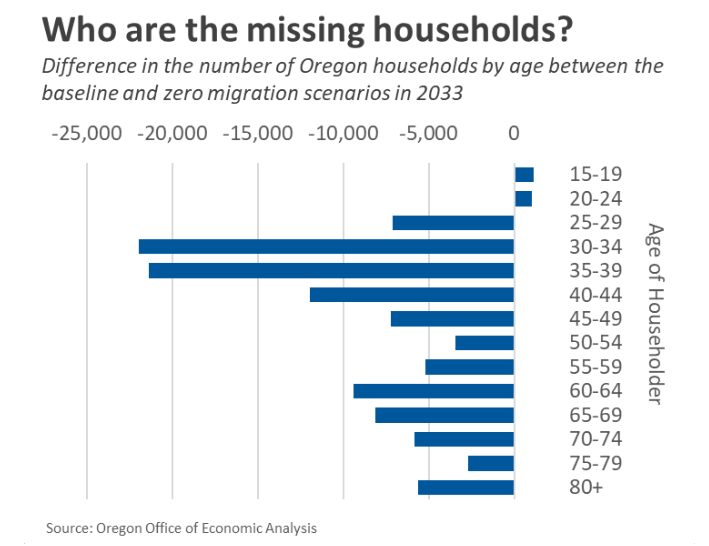Editorial: Let’s avoid the Oregon zero scenario
Published 5:00 am Sunday, January 21, 2024

- Zero
The zero migration scenario for Oregon is not pretty. It’s worth thinking about because of what it suggests Oregon should do.
What is the zero migration scenario? It would happen if the number of people leaving Oregon exceeded those moving in.
Trending
Oregon has not been like that. It’s been a place where younger people in their 20s and 30s come, start jobs and start establishing families.
The Census Bureau estimated that Oregon actually lost population in 2022 and 2023. A few thousand out of more than 4 million. Not a lot. Portland State University’s population estimates don’t show that decline. So maybe a zero migration scenario is not a new normal. It should be a new thing that state policymakers track.
The Oregon Office of Economic Analysis made a presentation to legislators about the zero migration scenario last year and released a more complete report this month. You can find that report here: tinyurl.com/ORzero. This editorial is like a short, arbitrary summary.
What could be bad about a zero migration scenario? You probably don’t have to talk to too many of your neighbors before one of them will bemoan people coming to Oregon, after all.
But zero migration could reinforce some bad things and invigorate them.
The number of people available in the workforce could decline. If there are fewer people, there may be a need for fewer workers. And there are Oregonians who for one reason or another could be part of the workforce and are not. Still, it could make it harder for businesses to find the workers they need.
Trending
If younger workers are not migrating to Oregon, the age of the workforce would get older. Older workers do tend to make more money. Still, over time, the need for care for seniors will increase at the same time as there may be fewer people to offer that care. While some people do migrate when they retire, many tend to stay where they are.
A decline in people coming to the state would reduce housing demand. There’s a plus. Oregon’s housing deficit would not go away. And one of the existing obstacles to build more housing is a need for construction workers. Fewer people coming to Oregon to be construction workers would make overcoming Oregon’s housing shortage more of a challenge.
State revenues would not necessarily decline. They might just grow less slowly.
When you look at why some areas of the midwest lost people, there was an accompanying loss of jobs. In Oregon, there are jobs and people are still moving away.
So why might Oregon be experiencing people leaving or not coming? We don’t think anybody has done enough research on this. The prime suspects are housing, housing and housing. And that makes housing an important part of the solution.
Moving to a place or away is a complicated calculus of many factors and not all of them are necessarily rational. Looking at what your job pays and the cost of housing can be a first, fundamental step.
Imagine being twentysomething or a thirty something and thinking about moving to Bend. Ever owning a house may seem insurmountable. Apartment rents might make you dizzy.
We can hear the zero migration apologists or noneedtoworryists already: It wouldn’t be so bad if fewer people moved to Oregon.
In the short run, they are probably right. Longer term, if Oregon is where people do not want to come or stay, living here may become like being on a toboggan that you can’t control. A bit too interesting. Just ask policymakers in Illinois how they feel as they struggle to reverse it.








